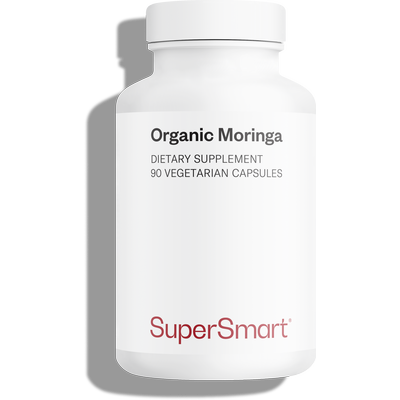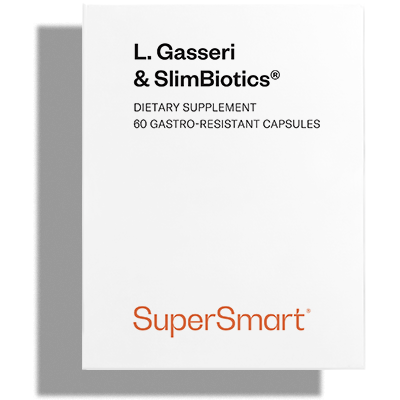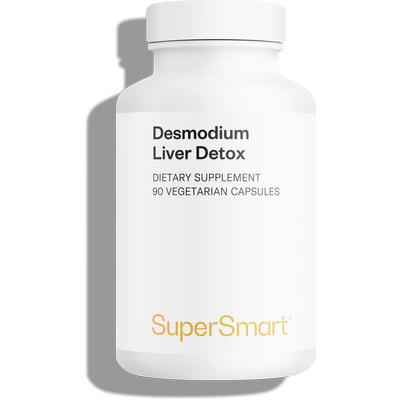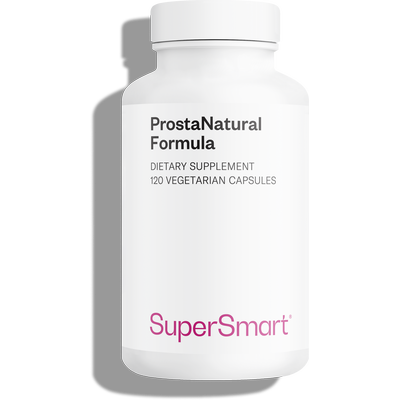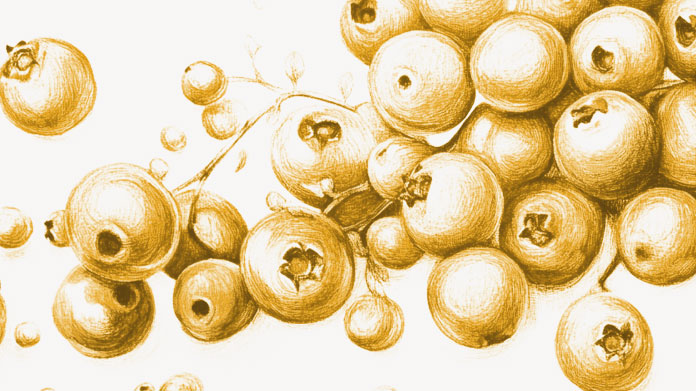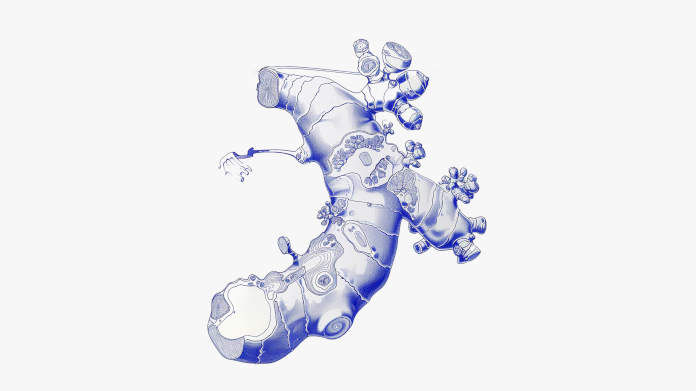Tanzanians switching to a Western diet: what effects has it had on their health?
A randomised controlled trial conducted in Tanzania on young men studied the effects of switching from a traditional African diet to a Western diet. The consequences were far from anecdotal...
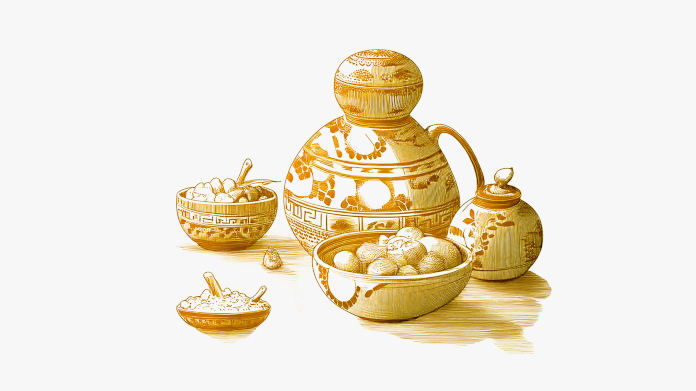
Eating habits and impacts on health: a randomised controlled trial on young Tanzanian men
In this randomised controlled trial, published on 3 April 2025 in the scientific journal Nature, seventy-seven healthy young men (median age 25.6) living in northern Tanzania were divided into three groups (1).
In the first group, participants who normally followed a traditional Kilimanjaro diet adopted a Western-style diet for 2 weeks.
The second group underwent the opposite transition, this time from a 'modern' Western diet to a traditional African diet for 2 weeks.
In addition to their usual Western diet, the members of the third group were asked to drink mbege, a traditional African drink made from fermented bananas, for 1 week.
Five control participants were included in the first two groups and kept their usual diet.
Blood samples were then taken at 3 separate times: at the start of the trial, after 1 or 2 weeks of intervention, and then 4 weeks later.
Switching to a modern Western diet induces major metabolic and immune changes
At the end of this experiment, and despite its brevity, the researchers were able to identify major immune and metabolic changes in the participants.
Those in the first group who switched to the modern Western diet experienced a net increase in 19 cardiometabolic proteins (including THBS4, which is involved in the formation of atherosclerotic plaques) and 7 inflammatory proteins (including those linked to the processes of apoptosis and cell adhesion, essential for maintaining cell integrity).
They also showed increased levels of C-reactive protein (CRP), a characteristic marker of inflammation, along with a weakened immune response (with reduced production of cytokines) to certain pathogenic bacteria, particularly Candida albicans.
For the researchers, this 'inflammatory rebound' is partly explained by increased intakes of saturated fats and sugars, but not solely.
It is also thought to result indirectly from an imbalance in the intestinal microbiota (dysbiosis) and the weight gain observed.
Conversely, a return to a traditional African diet rich in fibre and the consumption of mbege were associated with lasting anti-inflammatory effects.
These results suggest that switching from a traditional African diet — consisting mainly of fruit, vegetables, cereals, legumes and fermented products — to an industrialised Western diet causes a kind of 'physiological shock' that alters immune and metabolic functions.
Such dietary changes, which tend to occur in urban areas of sub-Saharan Africa, could partly explain the observed upsurge in cardiovascular disease, diabetes and chronic inflammatory conditions.
It should be noted, however, that this study does not undermine traditional European diets — such as the Mediterranean diet, which is widely acclaimed for its many health benefits (2).
Nor does it condemn the industrialisation of the food industry, which still feeds billions of people around the world, but rather its excesses — such as ultra-processed ready-made meals, additives, etc.
Exploring remedies in traditional African medicine
In addition to food, many substances derived from traditional African medicine are of growing scientific interest.
Moringa: a super-plant that regulates blood sugar levels
Nicknamed the ‘miracle tree’ for its exceptional nutritional properties, moringa (Moringa oleifera) is grown in tropical regions of Asia and Africa.
Rich in vitamins A, C and E, as well as essential amino acids and minerals (calcium, iron, potassium, magnesium, etc.), it is an integral part of many programmes designed to combat malnutrition around the world.
Its leaves also contain isothiocyanic compounds, which help maintain normal blood sugar levels by increasing insulin sensitivity (Organic Moringa is based on an extract of Moringa leaves from organic farming) (3).
Desmodium: the liver's ally
Native to West Africa, Desmodium (Desmodium adscendens) is a climbing plant in the Fabaceae family, long used by Cameroonian healers to treat jaundice and liver problems.
It combines a synergy of active ingredients (vitexin, isovitexin, saponosides, D-pinitol, etc.), giving it a powerful hepatoprotective action (4).
This is why naturopaths frequently recommend it to drain and cleanse the liver as part of detox cures, for example (the high-dose Desmodium Liver Detox formula contains 400 mg per capsule).
Baobab fruit: a natural tonic
The baobab (Adansonia digitata), or 'tree of life', is exceptionally long-lived, with an estimated lifespan of up to 2,000 years!
The pulp of its fruit, which is very tart, is traditionally used in Senegal to make a drink called bouye, appreciated for its tonic properties (due to its record vitamin C content, which is said to be 6 to 10 times higher than that of oranges).
Studies have also looked at its potential effects on blood sugar regulation (5). In cosmetics, it is also used in moisturising masks.
Kimere: a mine of probiotics
The Mbeere community in Kenya is very fond of kimere.
This fermented pearl millet porridge concentrates unique probiotic strains – including Lactobacillus fermentum K7-Lb1, K8-Lb1 and K11-Lb3 – which help to balance the intestinal microbiota (6).
It has since inspired the development of innovative food supplements (such as the SlimBiotics® compound in our L. Gasseri & SlimBiotics® duo formula, ideal for slimming diets) (7).
African plum: a prostate support
Pygeum africanum is the scientific name of the African plum tree, an evergreen that can grow up to 25 m tall.
Its bark, which contains large quantities of beta-sitosterol, is thought to help relieve prostate problems linked to benign hypertrophy (8).
Studies have also highlighted its ability to reduce prostate inflammation and improve urinary flow (the ProstaNatural Formula synergy combines African plum with other plants dedicated to urinary and prostate comfort, such as saw palmetto and nettle root, for enhanced efficacy) (9-11).
SUPERSMART ADVICE
References
- Temba, G.S., Pecht, T., Kullaya, V.I. et al.Immune and metabolic effects of African heritage diets versus Western diets in men: a randomized controlled trial. Nat Med (2025). https://doi.org/10.1038/s41591-025-03602-0
- Rishor-Olney CR, Hinson MR. Mediterranean Diet. [Updated 2023 Mar 27]. In: StatPearls [Internet]. Treasure Island (FL): StatPearls Publishing; 2025 Jan-. Available from: https://www.ncbi.nlm.nih.gov/books/NBK557733/
- Gómez-Martínez S, Díaz-Prieto LE, Vicente Castro I, Jurado C, Iturmendi N, Martín MC, Calle N, Dueñas M, Picón MJ, Marcos A, Nova E. Moringa oleifera Leaf Supplementation as a Glycemic Control Strategy in Subjects with Prediabetes. 2021 Dec 24;14(1):57. doi: 10.3390/nu14010057. PMID: 35010932; PMCID: PMC8746299.
- Magielse J, Arcoraci T, Breynaert A, van Dooren I, Kanyanga C, Fransen E, Van Hoof V, Vlietinck A, Apers S, Pieters L, Hermans N. Antihepatotoxic activity of a quantified Desmodium adscendens decoction and D-pinitol against chemically-induced liver damage in rats. J Ethnopharmacol. 2013 Mar 7;146(1):250-6. doi: 10.1016/j.jep.2012.12.039. Epub 2013 Jan 3. PMID: 23291573.
- Silva ML, Rita K, Bernardo MA, Mesquita MF, Pintão AM, Moncada M. Adansonia digitata L. (Baobab) Bioactive Compounds, Biological Activities, and the Potential Effect on Glycemia: A Narrative Review. Nutrients. 2023 May 1;15(9):2170. doi: 10.3390/nu15092170. PMID: 37432337; PMCID: PMC10180768.
- Njeru PN, Rösch N, Ghadimi D, Geis A, Bockelmann W, de Vrese M, Schrezenmeir J, Heller KJ. Identification and characterisation of lactobacilli isolated from Kimere, a spontaneously fermented pearl millet dough from Mbeere, Kenya (East Africa). Benef Microbes. 2010 Sep;1(3):243-52. doi: 10.3920/BM2010.0019. PMID: 21831760.
- Laue C, Papazova E, Pannenbeckers A, Schrezenmeir J. Effect of a Probiotic and a Synbiotic on Body Fat Mass, Body Weight and Traits of Metabolic Syndrome in Individuals with Abdominal Overweight: A Human, Double-Blind, Randomised, Controlled Clinical Study. 2023 Jul 5;15(13):3039. doi: 10.3390/nu15133039. PMID: 37447365; PMCID: PMC10346309.
- Wilt T, Ishani A, Mac Donald R, Rutks I, Stark G. Pygeum africanum for benign prostatic hyperplasia. Cochrane Database Syst Rev. 2002;1998(1):CD001044. doi: 10.1002/14651858.CD001044. PMID: 11869585; PMCID: PMC7032619.
- Breza J, Dzurny O, Borowka A, Hanus T, Petrik R, Blane G, Chadha-Boreham H. Efficacy and acceptability of tadenan (Pygeum africanum extract) in the treatment of benign prostatic hyperplasia (BPH): a multicentre trial in central Europe. Curr Med Res Opin. 1998;14(3):127-39. doi: 10.1185/03007999809113352. PMID: 9787978.
- Villar A, Silva-Fuentes F, Mulà A, Zangara A. Anti-Inflammatory Potential of Pygeum africanum Bark Extract: An In Vitro Study of Cytokine Release by Lipopolysaccharide-Stimulated Human Peripheral Blood Mononuclear Cells. Int J Mol Sci. 2024 Jul 30;25(15):8298. doi: 10.3390/ijms25158298. PMID: 39125867; PMCID: PMC11311769.
- Kwon Y. Use of saw palmetto (Serenoa repens) extract for benign prostatic hyperplasia. Food Sci Biotechnol. 2019 Apr 17;28(6):1599-1606. doi: 10.1007/s10068-019-00605-9. PMID: 31807332; PMCID: PMC6859144.
Keywords
15 Hours
Just OK
Just OK, ordering from company for many years and being safisfied
Lynn Mae
1 Days
Recomendo
Produtos encomendados são recebidos atempadamente e de acordo com o anunciado! Muito satisfeita!
Carla Sofia
1 Days
Everything is great!
Everything is great!
Jonas
6 Days
The delivery was fast and the product…
The delivery was fast and the product is great
SOMMARIVA Gianni
7 Days
Great service and lots of information
Great service and lots of information
Gabi
10 Days
Service Satisfaction
I’m satisfied with the service; it fulfilled what it set out to do.
Anfhony Abreu
13 Days
Original product and fast delivery
Original product and fast delivery. I haven't started it yet, but will do soon.
Vincenza Catania
16 Days
Good quality
Good quality. Good service.
Leonel Guzman
18 Days
Top!!!!!!!!
Top!!!!!!!!
Michael
20 Days
Excellent!
Products are great and delivered fast!
PARDINI Debora
21 Days
From order to receive the product
From order to receive the product, the process is smooth & fast. It’s good to customers.
WONG Mei Ling
22 Days
Fast delivery
very quick delivery to italy. product is good.
Customer
23 Days
Prompt delivry !!👍
Prompt delivry !!👍
SWEET Christine
23 Days
Good delivery and flawless quality
AS far as delivery and the visual quality are concerned, Supersmart is excellent. I will not comment on the efficacy of the products themselves, since that is only possible over a longer period and in a large customer base compared to people who do not consume a particular product.
Roger De Backer
24 Days
Perfect services
Perfect services, perfect support, great articles about products
Michaela Alali Beitlová
of experience
your money back
##montant## purchase


